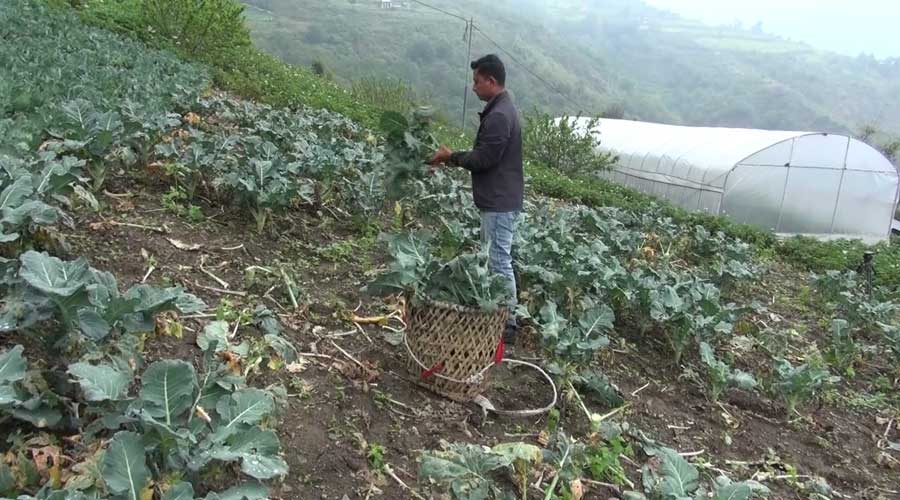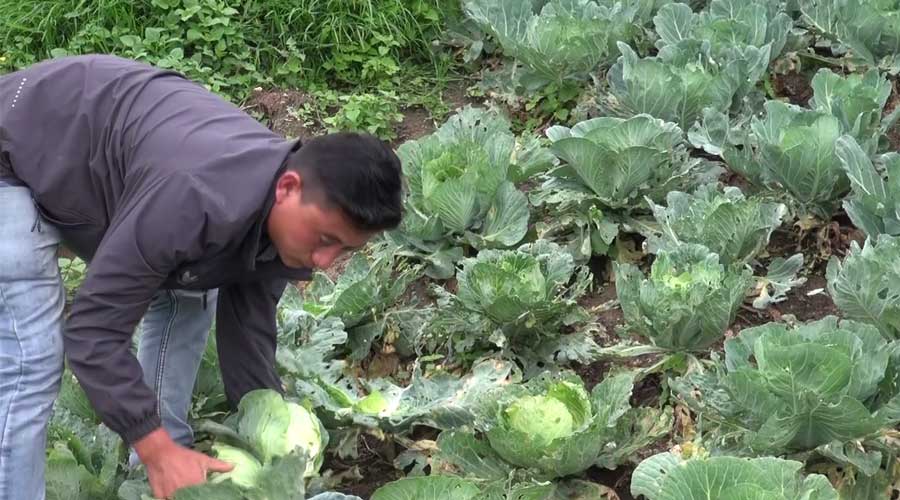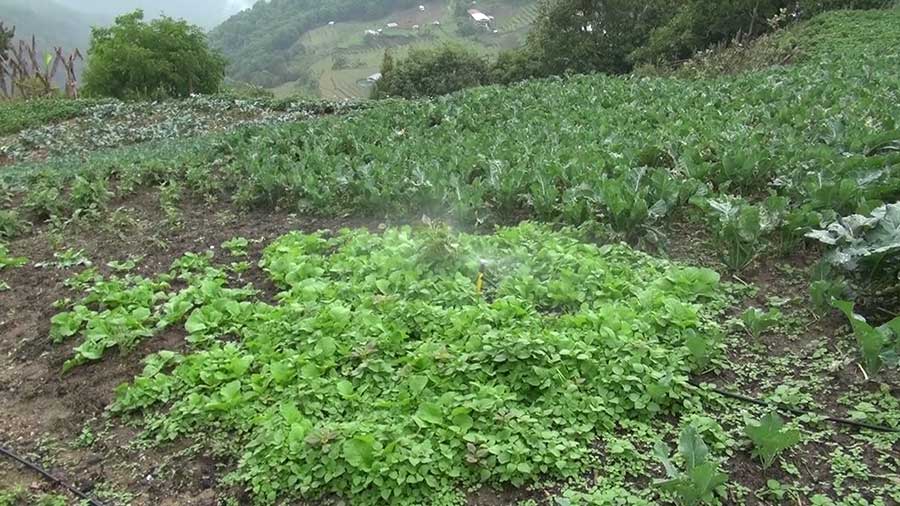
The government has always pushed the farming communities in the country to move beyond subsistence farming. It has encouraged the farmers to take up agri-businesses. However, not many farmers are serious about it, citing issues of climate change, inconsistent market platforms and fluctuating commodity prices. But on the flip side, some are making strides in making agriculture a bankable business. One such farmer is Jamyang Phuntsho, 32, from Dzongthung village in Bartsham Gewog.
As per what his village mates say, he is a successful farmer, earning a substantial income from his vegetable farming
His two-acre farmland has seven to eight different vegetables.
 Sharing his annual income stats, Jamyang said he earned almost a million Ngultrum just by selling vegetables last year. He supplies the vegetables to Trashigang and other nearby districts.
Sharing his annual income stats, Jamyang said he earned almost a million Ngultrum just by selling vegetables last year. He supplies the vegetables to Trashigang and other nearby districts.
During 2020 which marked the beginning of the pandemic, he earned more than Nu 350,000.
He said if one has the will, determination and perseverance, anything can be turned into a fortune.
“I consider my land as a bank because the more you work, the more you can make money and I return home to minimise the gungtong issue and to show a good example to our educated youth here in my village,” said Jamyang Phuntsho.
Besides vegetables, he grows cereals like maize, paddy, kidney beans and quinoa. Add to this, he plans to revive buckwheat cultivation shortly.
However, his initial years in farming were tough due to a lack of skills and knowledge.
“I received several training from the Farm Machinery Training Centre at Khangma. I got National Certificate 2 level training and regarding the fruit and vegetable nursing, I got training from Agriculture Research and Development Centre in Wengkhar,” he continued.
 Today, he is a lead farmer, validated by the Agriculture Research and Development Centre in Wengkhar in Monggar. As a believer in progressive farming, he trains his village mates in farm diversification.
Today, he is a lead farmer, validated by the Agriculture Research and Development Centre in Wengkhar in Monggar. As a believer in progressive farming, he trains his village mates in farm diversification.
“So far, I have shared my skills with around 16-17 people. The skills include fruit tree plantation, the ways of grafting and even how to nurture seed and vegetables,” Jamyang added.
He has also founded Happy Farmers Group to encourage farming related businesses and address marketing issues.
Given his successful farming ventures, Jamyang has no regrets about quitting his desk job six years ago. He said although Bhutan’s rural economy is primarily agricultural; there are a plethora of opportunities to earn income.
Sonam Darjay, Trashigang
Edited by Pema Lhaden










